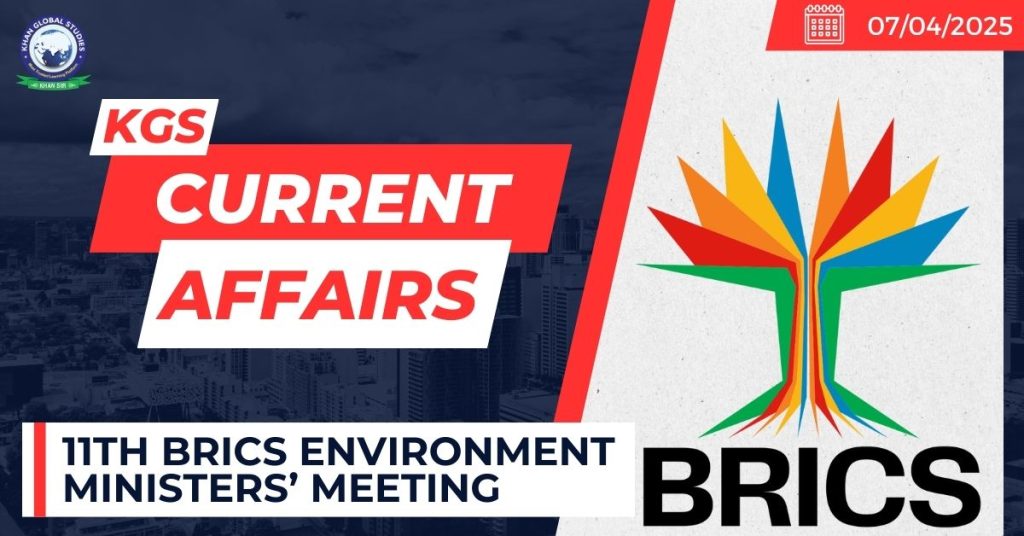Context:
India urged BRICS nations to unite on the ‘Baku to Belem Roadmap’ for mobilizing $1.3 trillion in climate finance to support Nationally Determined Contributions (NDCs).
Key highlights of the meeting
Speaking at the 11th BRICS Environment Ministers’ Meeting in Brasília, Brazil, the Indian delegation, urged BRICS nations to strengthen climate financing mechanisms to meet their sustainability commitments.
India called for collective leadership to advance the 2030 Climate Agenda i.e. UN SDGs adopted by all UN member states in 2015, with a target completion date of 2030.
India also highlighted that the proposed $300 billion per year by 2035 under the New Collective Quantified Goal on Climate Finance falls significantly short of the $1.3 trillion target.
India noted that COP30, to be hosted by Brazil, would serve as a crucial moment in advancing global climate adaptation and resilience efforts.
- The 30th session of the UNFCC climate conference (COP30) will be held in Belem, Brazil, from 10 to 21 November 2025.
India stressed the importance of equitable carbon budget utilization and called for “Just Transition” that allows developing countries to pursue growth while meeting climate goals.
India reaffirmed the BRICS New Delhi Declaration (2021), which advocates for a diversified energy mix embracing fossil fuels, nuclear, hydrogen, and renewables.
It also highlighted the Green Grids Initiative: One Sun, One World, One Grid, as a key global effort to enhance renewable energy integration.
India underlined the value of resource efficiency and circular economy approaches, citing the Resource Efficiency and Circular Economy Industry Coalition (RECEIC), launched under its G20 Presidency, as a replicable model for international cooperation on sustainable resource use.
Acknowledging BRICS’ progress in sustainability, India cited initiatives like the Partnership for Urban Environmental Sustainability, the Clean Rivers Programme, and Sustainable Urban Management.
Reaffirming its commitment to conservation, India highlighted the creation of International Big Cat Alliance (IBCA) and encouraged fellow BRICS nations to join other global initiatives such as the International Solar Alliance(ISA), the Leadership Group for Industry Transition(LeadIT), and the Global Biofuel Alliance(GBA) to collectively accelerate sustainable development and climate action.
About BRICS
- The term “BRIC” (Brazil, Russia, India, China) was first coined by Goldman Sachs economist Jim O’Neill in 2001.
- BRIC, as a formal grouping, started after the meeting of the Leaders of Russia, India and China in St Petersburg on the margins of the G8 Outreach Summit in 2006.
- The grouping was formalized during the first meeting of BRIC Foreign Ministers on the margins of UNGA in New York in 2006.
- Members: Brazil, Russia, India, China, South Africa, Egypt, Ethiopia, Indonesia, Iran, and the United Arab Emirates.
- It accounts for 47% of the world’s population and 36% of global GDP (PPP).
BRICS Environment Ministers’ Meeting
- 11th BRICS Environment Ministers’ Meeting, held in Brasilia, Brazil.
- The Indian delegation was led by Mr. Amandeep Garg, Additional Secretary in India’s Ministry of Environment, Forest and Climate Change (MoEFCC).
- India hosted the summit in 2016 in Goa and 2021 (virtually).

